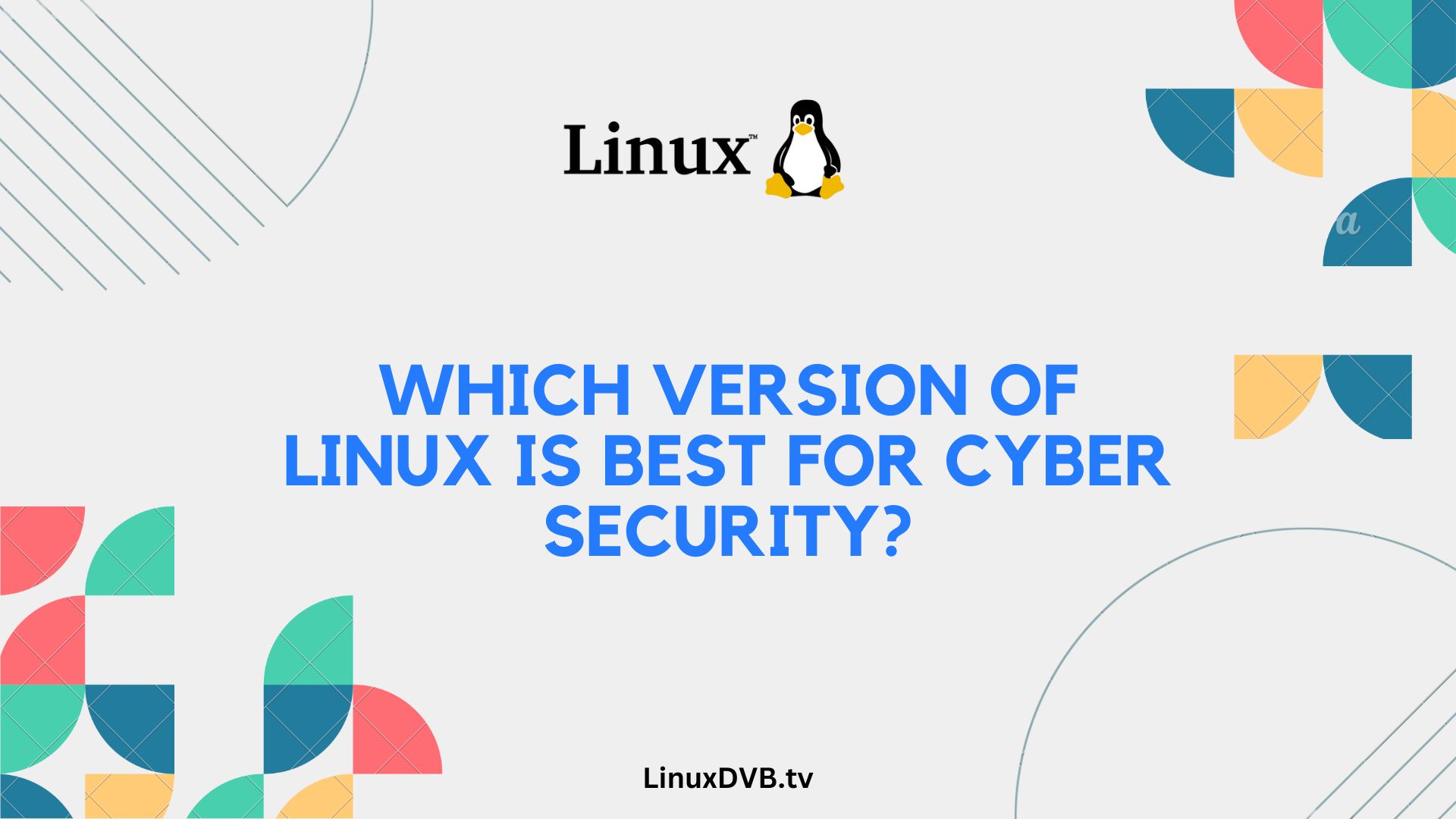In today’s digital age, where cyber threats are ever-evolving and becoming increasingly sophisticated, choosing the right operating system for your cybersecurity needs is of paramount importance. Linux, known for its security features and versatility, offers several distributions tailored for cybersecurity professionals and enthusiasts. In this comprehensive guide, we will explore the various versions of Linux best suited for cyber security and delve into their unique features, advantages, and use cases.
Table of Contents
Introduction
In an era marked by cyberattacks and data breaches, the importance of cybersecurity cannot be overstated. With an array of Linux distributions available, it’s essential to make an informed decision when selecting the one that aligns with your cyber security goals. We will walk you through the top Linux distributions designed to enhance your digital defenses, giving you the confidence to protect your systems and data effectively.
The Power of Linux in Cyber Security
Linux is renowned for its robust security features, making it an excellent choice for cyber security professionals. Its open-source nature allows for constant scrutiny and improvement, ensuring that vulnerabilities are promptly identified and patched. Moreover, Linux distributions offer a wide range of cybersecurity tools and utilities, empowering users to fortify their systems and networks.
Which Version of Linux is Best for Cyber Security?
1. Kali Linux
Kali Linux, developed by Offensive Security, is a Debian-based distribution specifically tailored for penetration testing and ethical hacking. It comes pre-loaded with a vast arsenal of tools for vulnerability assessment, digital forensics, and security auditing.
2. Parrot Security OS
Parrot Security OS is another Debian-based distribution designed for ethical hackers and security experts. It provides a user-friendly environment and a plethora of tools for tasks such as cryptography, anonymity, and information gathering.
3. BlackArch Linux
BlackArch Linux is an Arch Linux-based distribution that focuses on providing a vast repository of penetration testing and security research tools. It is an excellent choice for professionals who require a wide array of options for their cybersecurity endeavors.
4. Qubes OS
Qubes OS takes a unique approach to security by compartmentalizing tasks into isolated virtual machines. This architecture enhances security by minimizing the risk of compromise, making it ideal for individuals and organizations with strict security requirements.
5. Tails
Tails, an acronym for “The Amnesic Incognito Live System,” prioritizes privacy and anonymity. It is designed to be run from a USB stick, ensuring that all internet connections are routed through the Tor network, offering a high level of anonymity.
6. Whonix
Whonix is a security-focused Linux distribution that utilizes virtualization to create a secure environment for online activities. It routes all internet traffic through the Tor network, safeguarding user privacy.
7. OpenSUSE Leap
OpenSUSE Leap is known for its stability and security features. It is an excellent choice for those seeking a reliable Linux distribution with strong security measures.
Frequently Asked Questions
What is the primary advantage of using Linux for cyber security?
Linux’s open-source nature and active community support lead to rapid identification and resolution of security vulnerabilities.
Can I use Kali Linux for everyday computing tasks?
While Kali Linux is primarily designed for penetration testing, it can be used for everyday tasks with some customization.
Is Tails the most secure Linux distribution for anonymity?
Tails is highly focused on anonymity and privacy, making it an excellent choice for users who prioritize these aspects.
Are there any downsides to using Linux for cyber security?
Linux may have a steeper learning curve for beginners, but the wealth of online resources and community support can help overcome this challenge.
How often should I update my Linux distribution for security purposes?
Regular updates are crucial to ensure that your Linux distribution is protected against emerging threats. It’s recommended to update your system promptly when updates are available.
Which Linux distribution should I choose for a secure and private browsing experience?
Tails and Whonix are excellent choices for users seeking a high level of privacy and security while browsing the internet.
Which Linux is best for cyber security?
The choice of the best Linux distribution for cybersecurity depends on specific needs and preferences.Which version of Linux is best for cyber security?
There isn’t a single “best” version of Linux for cybersecurity; options like Kali Linux, Parrot Security, and Ubuntu are popular for different use cases.Which version of Linux is most secure?
The security of a Linux distribution depends on proper configuration and usage, rather than a specific version; Debian, CentOS, and Ubuntu Server are known for their security features.Conclusion
Selecting the right version of Linux for cyber security is a critical decision for anyone concerned about protecting their digital assets and data. Each of the distributions mentioned above offers unique features and capabilities, catering to different cybersecurity needs. By choosing the one that aligns with your goals and expertise, you can bolster your defenses and navigate the digital landscape with confidence.

